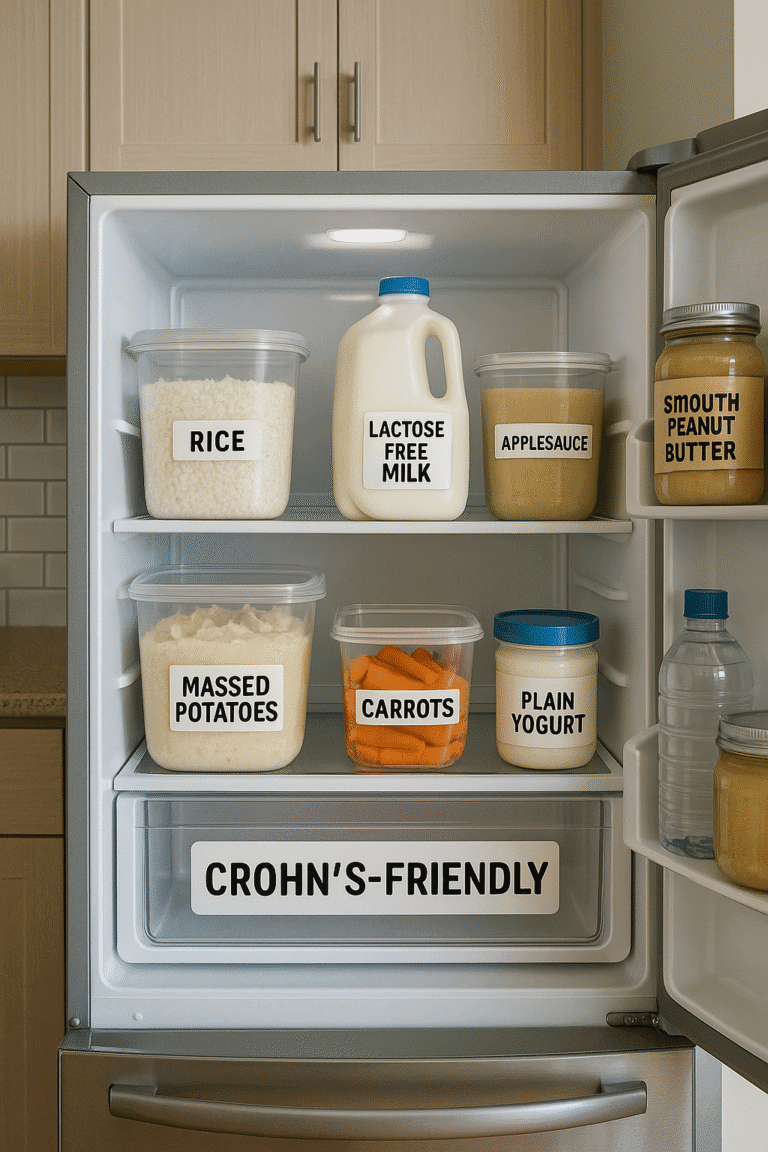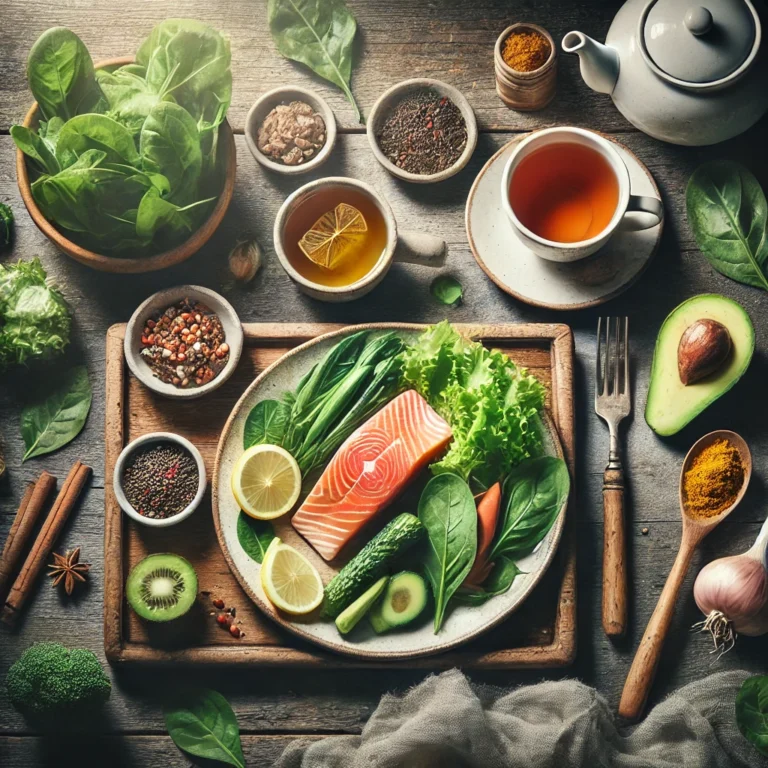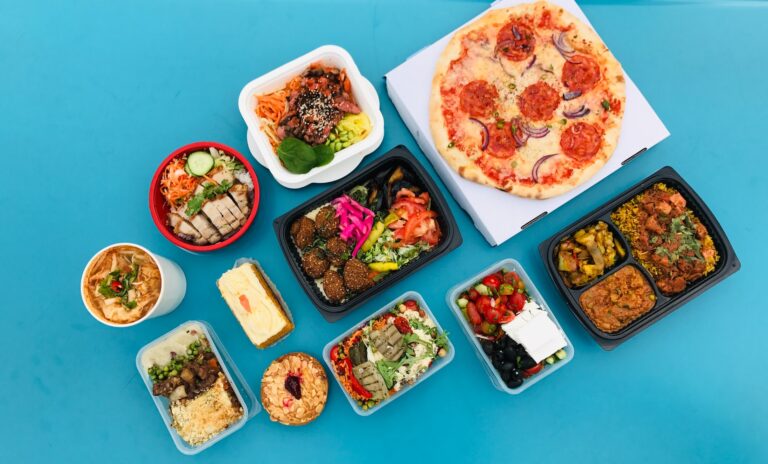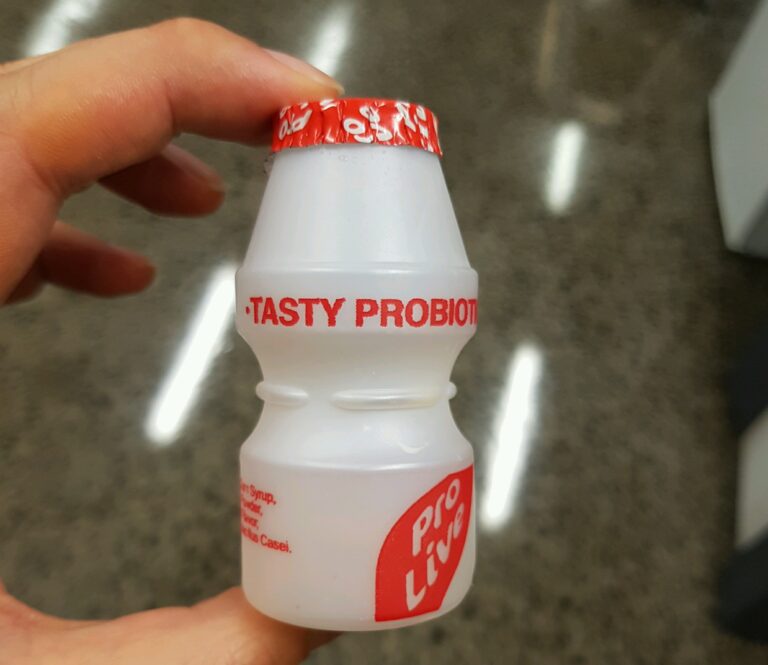Living with Crohn’s disease turns every bite into a tactical decision. One wrong move and your gut reacts like you’ve insulted its nan. Diet matters. But most advice is vague, conflicting, or written by someone who’s never had to cancel plans over symptoms. So here’s a practical Crohn’s disease diet plan, based on experience—not something recycled from a forum post about celery juice.
Why a Crohn’s Disease Diet Plan Can Do What Pills Can’t
Why You Should Listen to Your Dietitian Before Reddit
Before doing anything drastic with your food, speak to someone who actually understands gastrointestinal warfare. A dietitian can help tailor a Crohn’s disease diet plan that fits your symptoms, not someone else’s assumptions. Your gastroenterologist or GP can provide tailored advice based on your unique medical history, symptoms, and treatment plan. Never embark on dietary changes without their expert insight and supervision.
Crohn’s Diet Advice That Belongs in the Recycling
Contrary to that one post written by someone’s cousin with no medical training, there is no universal Crohn’s disease diet plan. It’s trial and error with a dash of patience. What soothes one gut may send another into meltdown.
Crohn’s Disease Flare-Up Diet Plan That Doesn’t Make Things Worse
Chicken Broth, Olive Oil and Caution
When Crohn’s kicks off, food becomes less about pleasure and more about damage control. Stick with gentle options—poached chicken, scrambled eggs, soft-cooked veg. Olive oil might help thanks to its anti-inflammatory edge, but even that can backfire if your gut isn’t having it. Liquid supplements are a fallback, not a feast. They’re not Michelin-star meals, but they deliver calories and nutrients without adding to the chaos—if your gut’s in the mood to cooperate.
Balanced Eating Without Pretending to Love Kale
Crohn’s behaves like a diva with a grudge. Some days it’s chill. Other days, mashed potatoes are offensive. That’s why a personalised diet for Crohn’s, guided by real food logs and repeatable meals, is more helpful than whatever’s trending on TikTok.
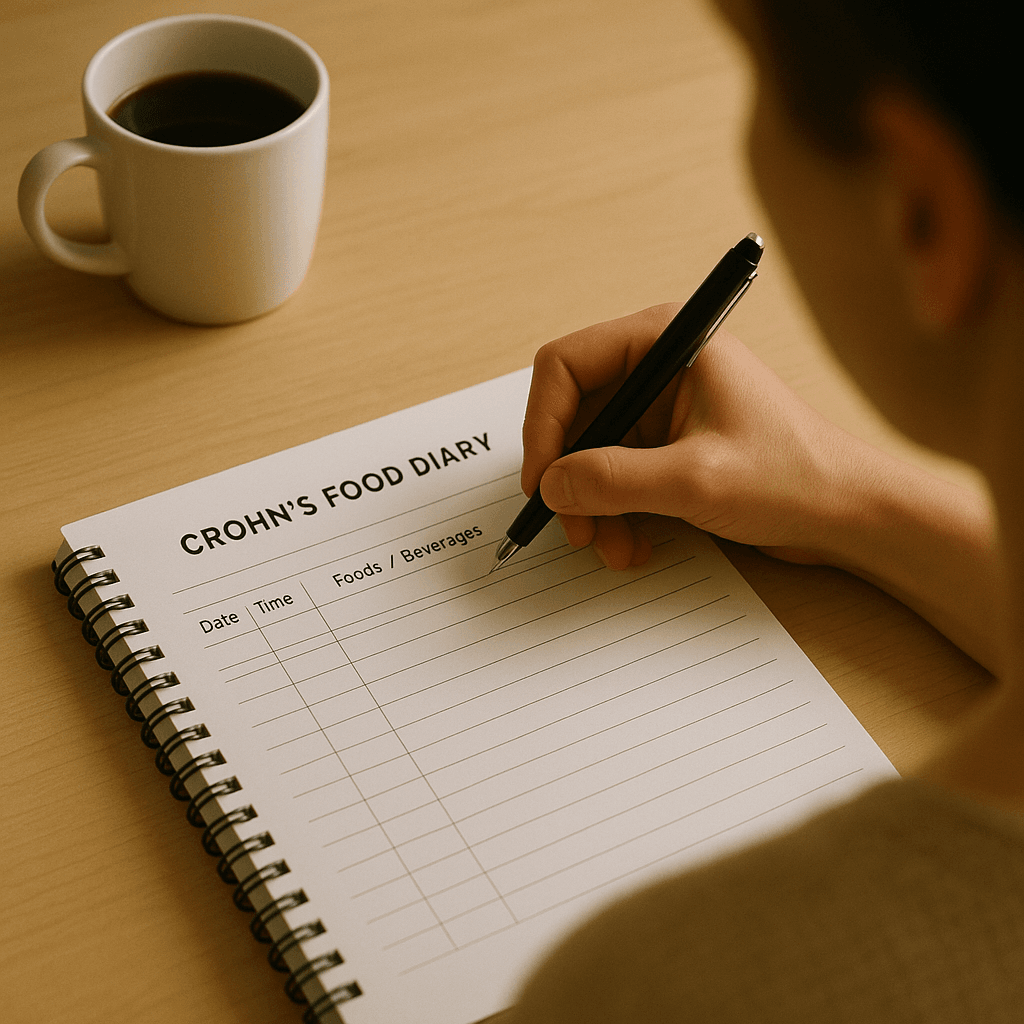
How a Balanced Crohn’s Disease Nutrition Plan Keeps Things Tolerable
Why a Balanced Diet Still Matters When Everything’s Falling Apart
Despite the challenges posed by Crohn’s disease, maintaining a balanced diet remains essential for overall health and well-being. A diet rich in nutrients, vitamins, and minerals can support immune function, aid in healing, and promote gut health. Strive to include a variety of foods from all food groups to ensure you’re meeting your body’s nutritional needs.
Crohn’s-Friendly Recipes That Won’t Betray You
In our quest for wellness, exploring Crohn’s-friendly recipes can be both nourishing and empowering. From soups that don’t bite back to smoothies that won’t spark a riot, Crohn’s-friendly recipes are less about nutrition trends and more about survival. If it’s soft, bland, and doesn’t cause regret, you’re onto something.
[catlist id=98 numberposts=4]
7-Day Crohn’s Disease Diet Plan with Real Meals and Fewer Regrets
So you want a Crohn’s disease diet plan that doesn’t read like a punishment menu? Fair enough. But let’s skip the quinoa worship and talk about food that keeps you functioning without inviting a flare-up.
This isn’t nutritional gospel. It’s a testable plan—a gut-friendly rough draft for people who want fewer symptoms and more sanity. Every body is different. What works for you might send someone else sprinting for the nearest loo. So approach it like an experiment: small tests, observed results, and zero assumptions.
And before you go reshaping your life around oats and overcooked carrots, speak to someone who actually knows what they’re doing. A qualified dietitian can help you build a Crohn’s disease diet plan that works for your body, not just your browser history.
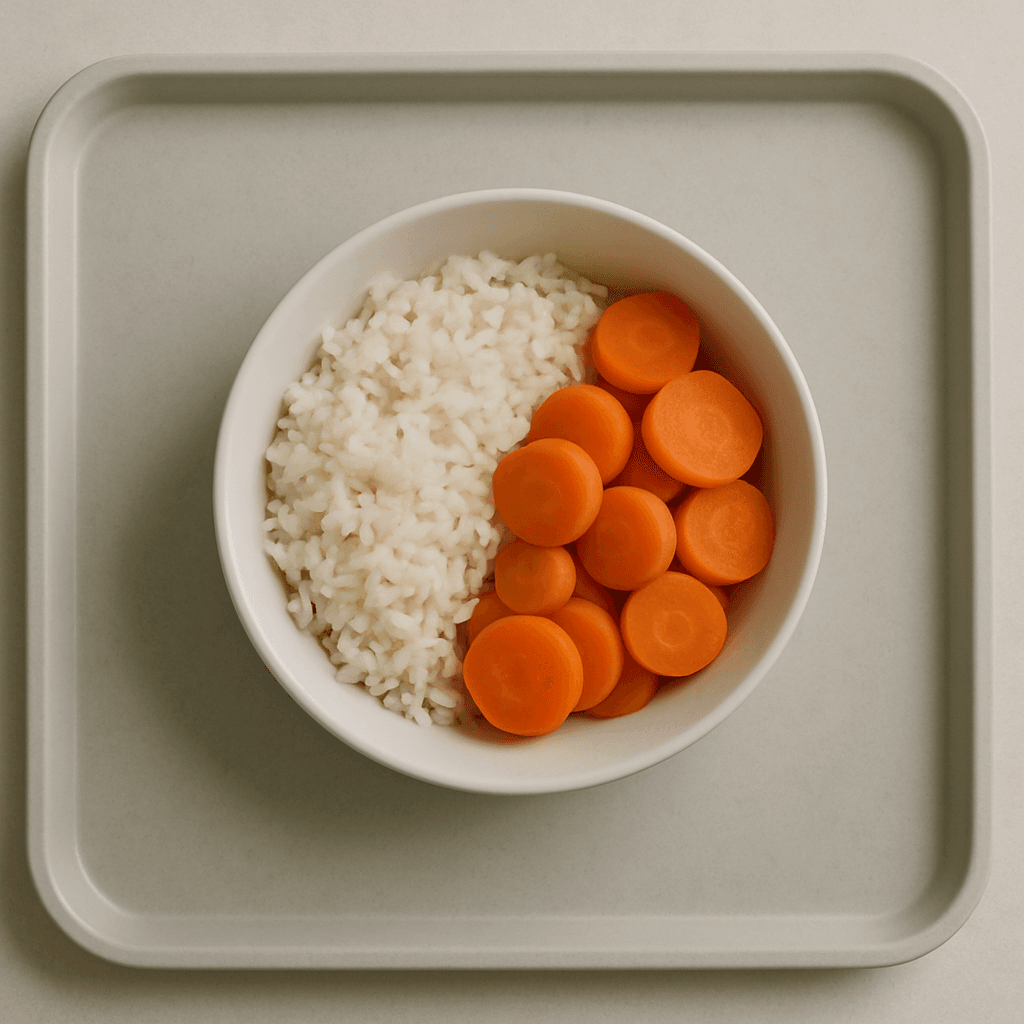
This isn’t a lifestyle. It’s riot prevention. Your goal isn’t to impress your gut. It’s to stop it from flipping over the dinner table. And yes, speak to a qualified dietitian. There’s real value in Crohn’s diet support—someone who’ll help you build a meal plan that doesn’t read like a beige surrender.
Here’s one way a week might look.
Day 1
Breakfast: Rice porridge with mashed banana
Lunch: Grilled chicken, mashed potatoes
Dinner: Baked cod, steamed carrots, white rice
Snack: Smooth applesauce or lactose-free yoghurt
Day 2
Breakfast: Scrambled eggs on white toast
Lunch: Turkey sandwich on white bread (no skin, no salad), peeled cucumber
Dinner: Pasta with olive oil and courgette
Snack: Saltine crackers or plain oatcakes
Day 3
Breakfast: Plain yoghurt with smooth peanut butter
Lunch: Baked potato with tuna and lactose-free cheese
Dinner: Slow-cooked chicken soup with carrots and rice
Snack: Gelatin dessert or a ripe pear (peeled)
Day 4
Breakfast: Cornflakes with lactose-free milk
Lunch: Chicken breast, mashed root vegetables
Dinner: Mild fish curry with white rice (lightly spiced with turmeric and ginger)
Snack: Banana or rice cakes
Day 5
Breakfast: Boiled egg and white toast
Lunch: Mild lentil soup (strained), soft bread roll
Dinner: Roasted turkey, sweet potato mash, green beans (soft-cooked)
Snack: Smooth peanut butter on crackers
Day 6
Breakfast: Low-fat plain yoghurt with canned peaches (no syrup)
Lunch: Pasta with lean minced turkey and carrot puree
Dinner: Baked salmon, peeled courgette, boiled potatoes
Snack: Custard or lactose-free rice pudding
Day 7
Breakfast: Oats cooked in water or almond milk, with stewed apple
Lunch: Egg salad sandwich (no raw onions, soft lettuce)
Dinner: Chicken stir-fry with rice noodles and soft veg (no garlic or chilli)
Snack: Digestive biscuit or lactose-free cheese slice
People often ask what the best Crohn’s diet is. There isn’t one. There are patterns—low-fibre, low-fat, low-surprise—but no guarantees. The best diet plan for Crohn’s disease is the one your symptoms let you get away with. Still, there are common wins. Soft carbs. Cooked veg. Proteins that don’t fight back.
Practical Crohn’s Diet Plan Tips That Don’t Involve Kale or Crying
Best Food Options for Your Crohn’s Disease Meal Plan
While Crohn’s can be infuriatingly inconsistent, there are some foods that many people swear help. Think oily fish. Cooked carrots. Boiled potatoes. The usual suspects in any list of the best food for Crohn’s. Incorporating oily fish rich in omega-3 fatty acids, fresh fruits and vegetables, and low-fibre options like boiled potatoes and cooked carrots may help mitigate symptoms and support gut health.
Real Crohn’s Diet Plans from People Who’ve Tried Everything
As a community, we have a wealth of collective knowledge and experience to draw upon. Share your journey, recipes, and insights on our forum’s food and diet board. Together, we can support one another on the path to wellness.
Living with Crohn’s disease is a journey marked by resilience, adaptability, and the pursuit of wellness. By prioritising informed dietary choices, seeking guidance from healthcare professionals, and embracing a balanced approach to nutrition, we can navigate the challenges of Crohn’s with grace and fortitude. Remember, you’re not alone on this journey – together, we can thrive in spite of Crohn’s.
While there isn’t a one-size-fits-all diet for Crohn’s disease, some dietary modifications may help alleviate symptoms and support overall health. These include avoiding trigger foods, such as high-fibre foods, spicy foods, dairy products, and caffeine, and opting for a low-residue or low-FODMAP diet during flare-ups. Additionally, incorporating nutrient-rich foods, staying hydrated, and consulting with a registered dietitian for personalised dietary guidance can be beneficial for managing Crohn’s disease.
While staying hydrated is important for overall health, there isn’t direct evidence to suggest that drinking excessive amounts of water specifically helps alleviate Crohn’s disease symptoms. However, maintaining hydration is essential, especially during flare-ups or periods of increased bowel movements. It’s advisable to consult with a healthcare professional to determine the appropriate fluid intake for individual needs.
A personalised diet based on symptom triggers, including low-fibre, low-residue, or anti-inflammatory foods, is usually most effective.
Yes. A structured meal plan with easily digestible, low-irritant foods can reduce symptom severity during flare-ups.
Yes. Common triggers include dairy, high-fibre vegetables, caffeine, spicy foods, and artificial sweeteners.
Opt for simple proteins, white rice, bananas, broths, and other low-fibre, low-fat foods that reduce digestive strain.
Begin with a food diary, consult a dietitian, and trial a low-residue or low-FODMAP approach tailored to your symptoms.

